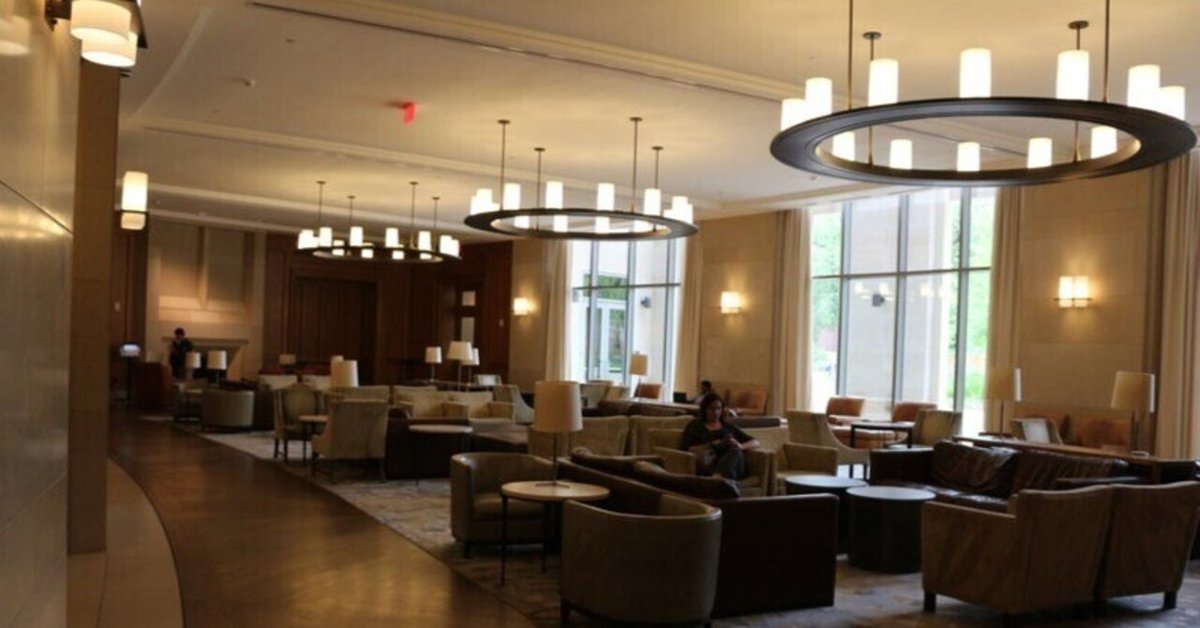
Tomo’s Story at Harvard Law School -ハーバード・ロースクール留学記-
Today Tomo recounts his study at undoubtedly prestigious Harvard Law School, followed by one year of research as a visiting researcher. Given that he already graduated from a law school in Japan and worked for a few years before studying abroad, what are his takeaways from this experience?
今回は、世界最高峰の大学であるハーバードのロースクールで留学、そして客員研究員として計2年間を過ごしたTomoさんから当時の話を振り返っていただきます。
日本のロースクール卒業、そして社会人を経て初めての留学経験から何を学び取ったのでしょうか?是非ご覧ください!
(留学体験談マガジンはこちら↓)
1. 留学のキッカケ ~違う環境に身を置いて成長へ~
(Hiro) でははじめに、留学された時期、場所を教えてください!
(Tomo) 2015年7月から、アメリカのケンブリッジ市にあるハーバードロースクールのLLMプログラムに留学しました。LLMプログラムとは、外国人中心に構成される、法学修士の学位をとるプログラムになります。
同プログラムを2016年5月に卒業した後は、2017年6月末まで同ロースクールの客員研究員として研究をしていました。
(Hiro) How long and where did you study?
(Tomo) I studied at Harvard Law School’s LLM from July 2015 to May 2016. LLM is a program for international students to earn Master of Laws. After graduation I stayed in Cambridge as a visiting researcher there.
(Hiro) どうして留学を志すようになったのか、キッカケを教えていただけますか?
(Tomo) 妻がもともと留学の予定があったこともあり、自分も同じタイミングで留学をすることはできればと考えていました。
今の仕事を始めるときには、そこまで留学ということは意識していませんでしたが、周りの先輩や同期が留学の話をしているのを見て、今までと違う環境に身を置くことで自分が成長できるのではという思いはありました。
(Hiro) What brought you abroad?
(Tomo) My wife originally planned to study abroad, so I wanted to do so too during the same period. Although unaware of my potential desire when I started my current job, conversations with aspiring colleagues made me think placing myself in a different environment would give me new knowledge, skills and perspectives.
(Hiro) なぜ、ハーバードのLLMで学ぼうと思ったのですか?
(Tomo) アメリカや外国から優秀な学生が集まっている印象があり、その中で学ぶことで、知的な刺激を多く得られるのではないかと思ったのが一番大きなきっかけです。
日本でも名の知れた有名な教授が多数居るので、その教授の授業を受講してみたいという思いもありました。
(Hiro) ハーバード以外にはどこを受験されたのですか?
(Tomo) コロンビア、NYU、ノースウェスタン、UCバークレー、ミシガンの計6校です。
(Hiro) Why did you decide on Harvard?
(Tomo) Certainly Harvard attracts exceptional talents from within and outside U.S., and I thought I could get the most intellectual stimulation through interactions with them. In addition, I knew of some of the faculty there, as they are internationally recognized, and I wanted to learn from their cutting-edge perspectives.
(Hiro) What other universities did you apply for?
(Tomo) Columbia, NYU, Northwestern, UC Berkeley, and Michigan (6 in total).
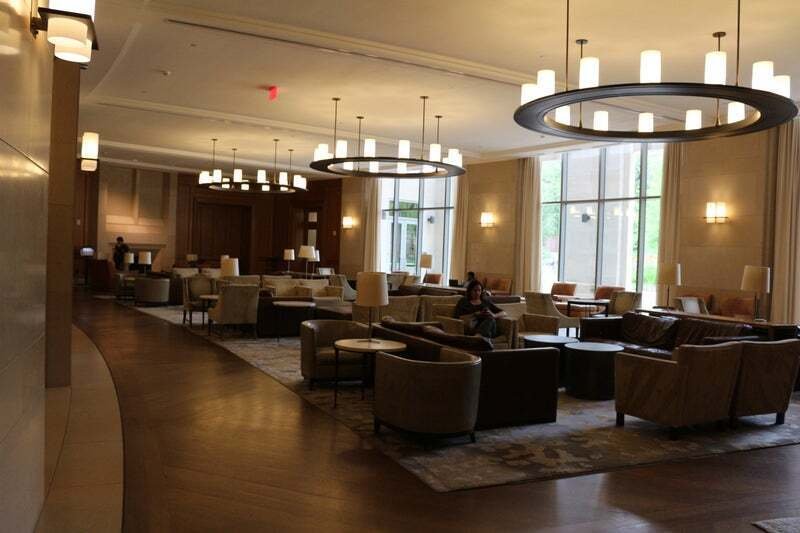
2. 出願準備 ~留学経験なしで継続的な努力~
(Hiro) 出願に当たって、英語はどのように勉強しましたか?
(Tomo) 私は大学時代ESSに所属してはいましたが、海外留学の経験は全くなかったため2012年から少しずつ勉強を始めました。
日本のロースクールを受験した時にTOEFLは90点を取っていたのですが、そこから具体的に点数を取らなければいけないという危機感もあって集中して勉強し始めたのが2013年頃からです。
TOEFL対策としては、Readingは単語帳で専門用語を暗記したり、時間を測って練習問題を解くなどしました。通勤の最中には、ポッドキャストを聞くなどして、Listening対策をしていました。
Speaking対策は、簡単な利用しやすい構文を暗記することで対応しました。
私は予備校には通いませんでしたが、結果的にはこれは失敗だったと思います。
目標の点数に達するまで、TOEFLを10数回受験することになりましたので、あまり効率的ではなかったと思います。
(Hiro) どのスキルが一番鍛える必要があると感じましたか?
(Tomo) Listeningだと思います。
Speakingは自己流で何とかなる側面もありますが、Listeningは持続的な努力が必要だからです。
Scientific Americanのポッドキャストなどを毎日聴き、とにかく英語に耳を慣らしました。
Writingはそこまで対策しておらず、構文の書き方を学んだくらいです。
(Hiro) How did you hone your English?
(Tomo) Although I belonged to English Speaking Society (ESS), I had never studied abroad, so I started in 2012. I already got a TOEFL score of 90 when I applied to my Japanese Law School, from 2013 I devoted more time to studying as I realized I needed to improve my score. As for reading, I memorized technical terms as well as tackled practice exams. While commuting, I listened to Scientific American Podcast to get accustomed to listening. Also memorized some typical phrases/sentences that I could easily use when speaking. I did not go to any prep school, which I think was a failure. As I took TOEFL more than 10 times before reaching a sufficient score, my preparation was not that effective.
(Hiro) Which skill did you consider the most important?
(Tomo) Listening. Because it requires a sustained effort, while you can improve speaking in your own way over a short period of time. I listened to Scientific American’s Podcast every day. I did quite little about writing, just learned how to write a well-organized paragraphs.
3. ハーバード・ロースクールでの学び ~多様性とソクラティック・メソッド~
(Hiro) では、大学院のプログラムについて詳しく教えてください!
(Tomo) ハーバードロースクールのLLMプログラムの特徴は何と言ってもdiversityだと思います。180名近くの学生が、77カ国から集まっていました。
特定の国の学生が多いということはなく、色々な国からバランスよく学生が集まっており、多種多様な価値観やバックグラウンドが背景にありました。
180名と聞くと多めかなと思う方もいるかもしれませんが、全員とコミュニケートすることができるギリギリの人数かなと思います。
少ない人数で密にという学校が好きな方もいると思います。色々な国の友人ができて、私はこの人数で良かったと思いました。
(Hiro) Then please elaborate on your degree program!
(Tomo) In a nutshell, diversity is the best word to describe Harvard Law School’s LLM. 180 students from 77 countries, with a well-balanced number for each rather than high concentration on some, gathered to study here, which infused our school with a multifarious values. I personally feel 180 people is the maximum size to communicate individually, although acknowledging that some prefer a smaller size. I thought this balance is great as I could make friends with classmates from various backgrounds.
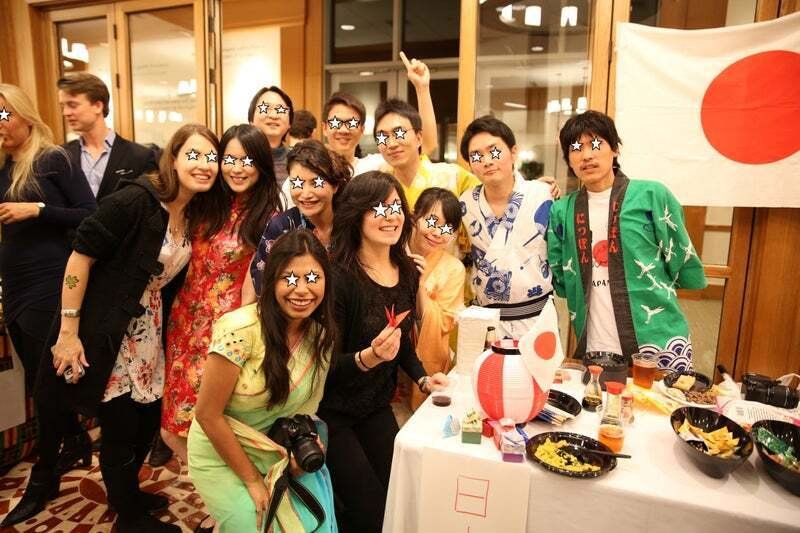
(Hiro) 科目の構成はどのようになっているのでしょうか?
(Tomo) 基本的には好きな科目をとることができるのですが、必修として、刑法、不法行為法、物権法、契約法などの基礎科目から1科目受講する必要があります。
それに加えて、25頁か50頁の論文を書かなければいけないという要求もあります。
選択科目は既存の知識があればスキップすることも可能なのですが、New York Barを受ける人たちは、法曹倫理などのNew York Barを受けるために必須の科目があるため、それらが総単位数の3分の1ぐらいを占めており、なかなか好きな科目を自由に取れないという話を聞きました。
あとハーバードの特色として、Clinicsという実務と実践の架け橋の役割を果たす制度があります。
これは一定の条件を満たせば裁判所に行って法廷に立ったり、オバマ政権時にあった恩赦の制度に関する書面を書いたり、裁判官と意見交換したりすることが出来ます。
留学前には思いもよらなかった嬉しい驚きでした。
(Hiro) それぞれの学期ではどんな科目を取られたんですか?
(Tomo) ハーバードは3セメスターになっていて、最初の秋学期は刑法、証拠法、Federalistを読むゼミなどを取りました。
冬学期は1/3開始~1/22試験という非常にタイトなスケジュールで、毎日同じ救済法の授業を履修しました。
春学期は刑事手続法、量刑法Sentencing、Clinic、民主主義と裁判の関係について考えるゼミなどを取りました。
このうち刑法は1LというJD生が取る授業なので、自分以外の70人程が全員アメリカ人でした。
この授業はソクラテックメソッドで、教授が封筒から生徒の名前を取り出して当て、「この判例と少しだけ事案を変えたらどうなるか?」といった質問を投げかけるスタイルです。
ちなみにその授業では実際に刑務所に行ったり、精神科医などの実務家の方が来て話を聞いたりしました。
(Hiro) What does the organization of curriculum look like?
(Tomo) Most courses (criminal law, tort law, property law, contract law) are electives, and we also need to submit a dissertation of 25 or 50 pages. Although we can waive some electives courses if we can show possession of knowledge on this topic, almost one-third such as legal ethics are virtually required because these are core courses tested in New York bar exam. Another major characteristic is Clinics which serves as a bridge between theory and practice, in which you can actually enter the courtroom, write a document on pardon, which was institutionalized under the Obama administration, or have a discussion with judges there. I haven’t imagined myself in such a practical situation, so this was an unexpected delight to me.
(Hiro) What courses did you take in each semester?
(Tomo) Our LLM program comprises three semesters. In fall, I took criminal law, evidence law and seminar on Federalist, in winter (from Jan 3 to Jan 22) remedy law, and in spring criminal procedural law, sentencing law, Clinic and seminar on relationship between democracy and judiciary. Among them the criminal law is basically for JD students, so I was the only non-American out of 70 students. This class was offered in a Socratic method. The professor picked up a paper with each student’s name on it from an envelope and then asked questions on how each specific case applied to a slightly different situation. We also visited a court as well as invited some guest speakers as part of this class.
(Hiro) 学生の出身国の特色はあるのでしょうか?
(Tomo) 非常にばらけていて、世界各国から来ています。
多い国としては、ブラジル、インド、中国、イギリス、イスラエルからそれぞれ10人程度ですね。
日本人は5人で弁護士4人、裁判官1人でした。
(Hiro) 教授は実務家経験のある方が多いのでしょうか?
(Tomo) アメリカでは、ロースクール卒業した後に優秀な人はLaw clerkという、判決案を書いたり文献を調べたりして実際に司法判断に影響を及ぼす仕事に就いています。
教授もLaw clerkをやっていてその後すぐ教授になる方もいれば、その後弁護士として働いてから教授になっている方もいますね。
(Hiro) 日本にはLaw clerkという制度はあるのでしょうか?
(Tomo) 全く同じではないのですが、裁判所調査官という人がいます。
(Hiro) How about the demography of students?
(Tomo) It’s pretty well-balanced, coming from so many countries. 10 students from Brazil, India, China, UK, Israel, 5 students from Japan (4 attorneys and 1 judge).
(Hiro) Do faculty have a professional experience in this field?
(Tomo) In the U.S., distinguished alumni from law school serve as a Law clerk, which is a profession that actually influences court decisions by drafting them or doing some research on relevant cases. Some faculty come here after serving as a law clerk or becoming an attorney.
(Hiro) Is there a similar system in Japan?
(Tomo) Not exactly the same, but there is a profession called judicial research official.
(Hiro) 大学院でのスケジュールはどんな感じでしたか?
(Tomo) 客員研究員の時は、朝7時起床、朝8時30分から10時すぎまで授業、その後図書館で自習し、お昼はランチトークに出席、午後になったら裁判所での研修、午後5時すぎにロースクールの図書館に戻り自習、午後7時から友人と夕食を食べ、午後9時に図書館に戻り自習、午後11時すぎに帰宅就寝という生活でした。
隙間の時間は家に帰らず、どちらかというと図書館にいました。
LLMの時はこれと異なり授業が2コマ入ってくるイメージです。
(Hiro) 裁判所での研修とはどのようなものなのでしょうか?
(Tomo) 裁判所で傍聴をした後、裁判官の方と振り返りの質問や議論を行うものです。
連邦地裁では恐縮なことに裁判官の隣に座らせていただき、裁判官の方が毎回の事件の前に私のことを紹介してくました。
(Hiro) How was your daily schedule back then?
(Tomo) When I was a visiting researcher, I woke up around 7am, attended a class from 8:30 to 10am, studied in a library afterwards, then attended a lunch talk. In the afternoon, I visited a court and went back to the library at 5pm, had dinner with friends at 7pm, back to library again at 9am and studied, finally went back home around 11pm. In between events/classes I basically stayed at the library. As a LLM student I had two classes instead of one.
(Hiro) What did you do during your visit to a court?
(Tomo) I listened to the court decisions and then had a debrief with judges where I asked questions etc. Whenever I attended the federal district court, the judge introduced me to the audience, which I thought was a great honor.
4. 日本のロースクールとの違い ~予習の比重~
(Hiro) 日本でもロースクールに通われていたとのことですが、何か違いなどは感じましたか?
(Tomo) 絶対的な勉強量ではそこまで変わらないのですが、日本はどちらかと言うと試験勉強の時間(復習)が多かったです。
対照的に、アメリカの場合は予習に大部分の時間を費やしました。リーディングを読み込んだ上で、事案の論点を押さえてそれとは異なるケースに備える必要があるからです。
また、予習の際に、アウトラインという試験対策のまとめノートみたいなものを作るので、それがしっかりしていれば、復習はそれほど時間をかける必要はなかったです。
日本のロースクールは教授がソクラテックメソッドに慣れていないこともあり、その場での議論という感じはあまりしなかったように思います。
(Hiro) Gradingの面で違いはありますか?
(Tomo) 期末試験の割合が多いという点では似ています。
In-class examは3時間、他にone day take homeという、問題を受け取ってから8時間以内に提出する形式もあります。
ゼミは基本的にペーパーでしたね。自分が取ったクラスはPresentationやGroup projectはなかったのですが、企業法務や交渉術などの授業ではあるようです。
(Hiro) You also attended a law school in Japan. Do you feel any differences?
(Tomo) The total amount of studying is not that different. However, in Japan I spent most of the time on preparation for exam (review), whereas in the U.S. on preview, as I needed to go through reading assignments and prepare for class discussions with many points and applicability to other cases in mind. In addition, we are supposed to make an outline (similar to a summary of each lecture) and this save me the time to prepare for reviewing. Faculty at Japanese law schools as I understand are not accustomed to the Socratic method and most of the classes were dominated by the professor.
(Hiro) Any difference in grading?
(Tomo) Pretty similar in that most of them are determined by finals. We have 3 hours of in-class exam, and one day take home exam that we are supposed to turn in within 8 hours. Seminars are basically by papers. I had no presentations or group projects, but other courses such as incorporate legal affairs and negotiation skills adopted such styles.
(Hiro) 留学前と後でのギャップ(驚いたことなど)はありましたか?
(Tomo) 一番大きかったのは、ランチトークの充実です。
ハーバードロースクールでは、毎日数種類(日によっては10数種類)のランチトークが開かれ、学生は自由に出席でき、しかもランチが無料で提供されます。これに出席すればランチは買う必要がありません。
トークの内容も、例えば宇宙法の実務的展開や、現役裁判官による裁判実務の紹介などなど多岐にわたっています。
トークの内容でどれに出席するか決めるのが通常ですが、場合によっては提供される無料ランチの内容で、出席するトークを選んだりする学生もいるとか(テキサスバーベキューやSushiは特に人気でした)。
日本の法科大学院ではこのようなことは全くありません。
アメリカはロースクールの学費が高いので、このようなサービスがあるのもまあ当然といえば当然かなと思いますが。
ランチトーク以外にも講演がすごく多いです。
アメリカ各地から弁護士とか裁判官、他のスクールから教授が来て発表したりしていました。ここで講演するということは、先方にとっても栄誉と言えるのかもしれません。
(Hiro) What surprised you during your stay in Boston?
(Tomo) The biggest surprise is the abundance of lunch talk. Harvard law school hosts several (sometimes more than ten) lunch talks where students can participate and have lunch for free. The topics varied from practical application of space law to introduction of legal practices by incumbent judges. Although most students decide on which to join looking at the content, some do so depending on which lunch will be served (among the most popular were Texas BBQ and sushi). I have never seen such a phenomenon at my Japanese law school, although I feel like it should be here because of the expensive tuition fee. Aside from lunch talks, there are many events where attorneys, judges or professors from other universities came here to give a presentation. I think it’s because giving a talk here is also an honor to these guest speakers.
5. 留学中の苦労 ~会話から法体系の違いまで~
(Hiro) 留学中に苦労したことを、勉強面でもそれ以外でもあれば教えてください。
(Tomo) 日本は刑法でいえば「窃取=意思に反した占有の移転」といった定着している定義 があるのですが、アメリカでは学説という概念はなく、裁判例が全てなんです。
以前Midoriさんも書いていた、大陸法とコモンローの違いですね。
それと、やはり最初は会話に苦労しました。
相手の言っていることが分からなかったため、慣れるまで数ヶ月はかかったと思います。
そういう意味で、周りの友人とのコミュニケーションも、最初のオリエンテーション(8月後半)から全力でできたという訳ではありませんでした。
授業が始まるとあまりLLMの学生と交流する機会はないので、最初からもっと積極的に話すことができれば、もう少し輪が広がったのかなと思います。
そういったこともあって、途中から個別に友人をランチやディナーに誘ったり、友人に仲良い友達を連れてきてもらったり、家に友達を呼んだりして、交流する機会を意図的に増やすようにしました。
(Hiro) 日本人同士のつながりはどの程度あるのでしょうか?
(Tomo) 日本人が5人しかいないので、固まることがそもそも難しいです。
日本人とばかり遊ばないようには意図的に心掛けていました。
また、学期の序盤はどうしてもアジア人で固まってしまう傾向があったので、9月下旬頃から意図的に他のクラスメートとも交流の機会を設けるようにしました。
(Hiro) What are some challenged you faced?
(Tomo) In Japan, we can reply on some sort of established theories when interpreting the law, for example “theft means transfer of ownership despite the owner’s will” in the realm of criminal law. However, in the U.S. there is really no theory and only court decisions matter, as Midori explained in the past post. This is the difference between continental and common laws. Moreover, I had difficulty in conversation with classmates, especially at the beginning. It took me a few month as I wasn’t used to listening to their fast English. In that sense, I could have had more opportunities to communicate with classmates during the orientation to broaden my network, for once the semester began everyone took different courses and there were few chances to talk with each other. After realizing this, I made a deliberate effort to invite classmates to lunch or dinner individually, ask them to also accompany their friends, or invite them to my apartment.
(Hiro) Many opportunities to interact with Japanese classmates?
(Tomo) It’s naturally difficult to get together as there were only 5 Japanese students. I intentionally try not to communicate with them too frequently. Moreover, I noticed that we tended to talk with Asians without being conscious, so also had tried to talk with classmates from other parts of the world since the first September.
(Hiro) 留学先で身に付けた、あるいは気付いた自らの強みがあれば教えてください!
(Tomo) 人と話すのが好き、ということが自分の強みだなと思いました。
あまり人見知りせず、色々な会合に顔を出しましたし、お酒を飲みながら、または一緒に旅行をしながら、色々な国から来ている友人たちと語り合うことができました。
これからも、人見知りせず、自分の枠を広げるためにも、色々な人たちと交流をしていきたいと思います。
(Hiro) What strengths did you acquire or become aware of?
(Tomo) I realized that I really like to talk with people, which I believe is my strength. I moved away from being shy and talked with friends from various backgrounds by attending events, drinking, traveling etc. I would like to continue to this networking, which I think will further broaden my perspectives.
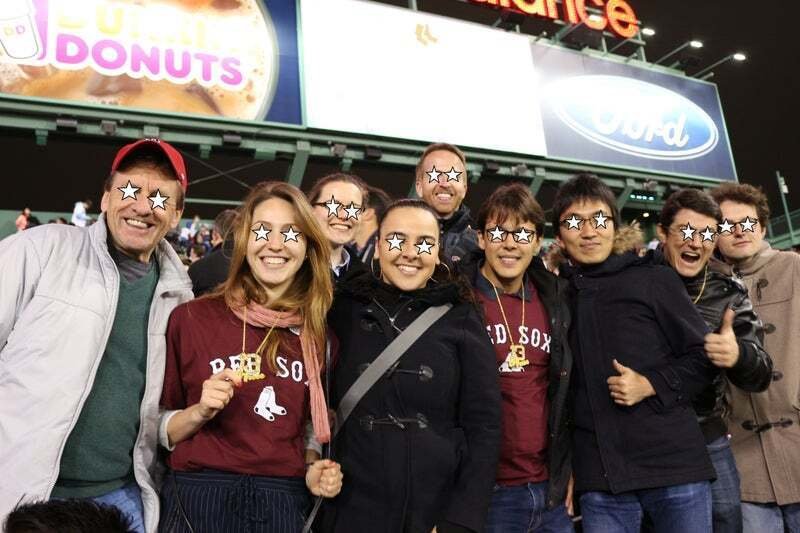
6. 印象的な出来事 ~学生参加で校章廃止~
(Hiro) 留学中で印象に残っているエピソードはありますか?
(Tomo) 2015年の年末に、ロースクールの1階に掲げられている教授の写真のうち、アフリカンアメリカンの教授の顔写真に黒いテープが貼られるという事件がありました。
翌日、直ちに全学生及び教職員が集まり、このような事態にどのように対処すべきか、全員で議論を行いました。
私が受講していたクラスでも、急遽予定を変更して、教授も交え、生徒会長が司会をして学生間で議論し合いました。
人種に関わる問題について全員で真剣に議論したことは忘れられません。
学長が憲法の先生だったのですが、授業をしているときに他の学生が乗り込んできて、「憲法の話ではなく今ロースクールで起こっているこの事件を議論すべきだ」ということを直談判したんです。
学長はその場で「何を議論すべきか多数決で決めよう」と仰ったそうなのですが、これは素晴らしいことだと感じました。
また、当時ハーバード・ロースクールの校章が奴隷制度で利益を得ていた家のものであって、廃止すべきだという運動と相まり、委員会を学長が立ちあげてそこに学生と教授が参加し、3ヶ月の議論の結果として当該校章の廃止にもつながりました。
この事件に抗議する学生たちが、ロースクールのロビーを占拠し寝泊まりするという事態にも発生しまして、逆に言うと反対言論がしづらい環境だったとも言えます。
(Hiro) Any episode that struck you?
(Tomo) At the end of 2015, one of the pictures hung at the ground floor of law school, portraying an African American professor, was covered with a black tape. The next day all the students and faculty came together and had a discussion on how to deal with this depressing incident. Also in one of my classes, the professor ceased originally planned lecture and discussed this issue, which was facilitated by the President of Student Association. I never forget this experience of seriously discussing on the issue of race. The dean of my school taught constitution, and during this class students who were not taking this course popped in the classroom and argued that we should not discuss constitution but the serious issue happening right now in this building. The dean replied by saying “let’s decide on what to discuss by a majority rule”, which I think was a sensible decision. This movement was coupled with the one toward abolishment of its school symbol, as it came from a family who benefited from slavery. The dean initiated a steering committee composed of students and faculty, and after a three months’ discussion the school decided on doing away with this symbol. Also some students occupied the lobby and stayed overnight there to express their objection, which I think is indicative of the atmosphere that more or less repressed counterarguments.
(Hiro) ハーバード日本人会という集まりがあると聞いたのですが、どんなことをされているのでしょうか?
(Tomo) 飲み会を年に2回くらいしている他、2年目の時には各スクールの人がそれぞれ自分の専門分野について学んだことを発表したりもしました。
普段あまり聞けない分野の最先端の話を聞けたのはとても良い学びになりました。
(Hiro) ボストンの他の大学との交流はあるのですか?
(Tomo) MITとかタフツ大学の授業を取ることが可能です。
あとはボストン日本人研究者交流会というのがありまして、規模感が多すぎず少なすぎずという感じで、分野もお医者さんだったり理系の研究者の方と、あまり普段交流がない人が多かったです。
そういった中で、日本人の人から知的刺激を受けることが多かったのは嬉しい誤算でした。
(Hiro) I heard about Harvard Japanese Community. What does they actually do?
(Tomo) Organized networking events twice a year, and in my second year we took turns presenting what we learned at each school. It was a rare and great opportunity to gain knowledge on cutting-edge research on each field.
(Hiro) Any interactions with other universities in Boston?
(Tomo) We can take courses offered by MIT or Tufts. Also there is the Boston Japanese Researchers Federation, which I think is of a decent size, where I talked with such people as doctors or researchers on science. These intellectual stimulation from Japanese folks are something that I hadn’t expected before studying abroad.
7. 留学希望者へのメッセージ ~嫌な経験という人はいない、まず目的から~
(Hiro) 最後に、留学を考えている方へのメッセージをお願いします!
(Tomo) 留学が嫌な経験だったという方はあまりいないのではないでしょうか。
必ず新しい発見がありますので、どのタイミング・どの国に行くか等色々考えることはあるかもしれませんが、チャンスがあるなら是非留学されることをおすすめします。できるならなるべく若い時がいいですね。
語学の吸収力も年をとると弱ってしまうような気がします。ハーバードに学部生から開成、灘の人達が来ていたのですが、英語力の伸びが全然違ったと思います。
なので、語学力を学ぶことを中心の目的とするなら若い方が良いのですが、職務経験を生かして専門職大学院に行かれる方も多いので、何を目的にするかによるのかなと思います。
それと、語学の勉強はコツコツ毎日やるに限ります。1日でもリスニングをサボってしまうと、一気に能力が落ちてしまいます。通勤時間など、隙間時間の活用をおすすめします。
最後に、ハーバードロースクールへの留学を考えている方は、ハーバード日本人会のBlogに私も記事を書いていますので、そちらをご参照いただければと思います。
(Hiro) Please share your passion with those who consider studying abroad!
(Tomo) I have never encountered someone who did not like their experience of studying abroad. I strongly recommend studying abroad, whenever chances are available, although there are many things to consider like which country and when to go. This is because I believe whenever you dive into a new place you can discover something that you won’t notice otherwise. I personally wish I could have studied abroad at a younger age, as aging might make it harder to improve your language skills. I talked with undergrads who came directly here after graduating Kaisei or Nada high school (one of the top schools in Japan), and noticed their improvement of English was way faster than mine. Therefore, my conclusion is that if you focus on honing your English skills, the younger the better. On the other hand, it also depends on your purpose of studying abroad, as doing so after having some years of professional experience will give you the opportunity to bridge your experience and theory.
Also, I recommend practicing English every day, taking every opportunity such as during your commute. If you don’t do that for even a single day, your English ability will decline.
Last but not least, if you are interesting in studying at Harvard law school, please take a look at my blog post in the Harvard Japanese Community Website!
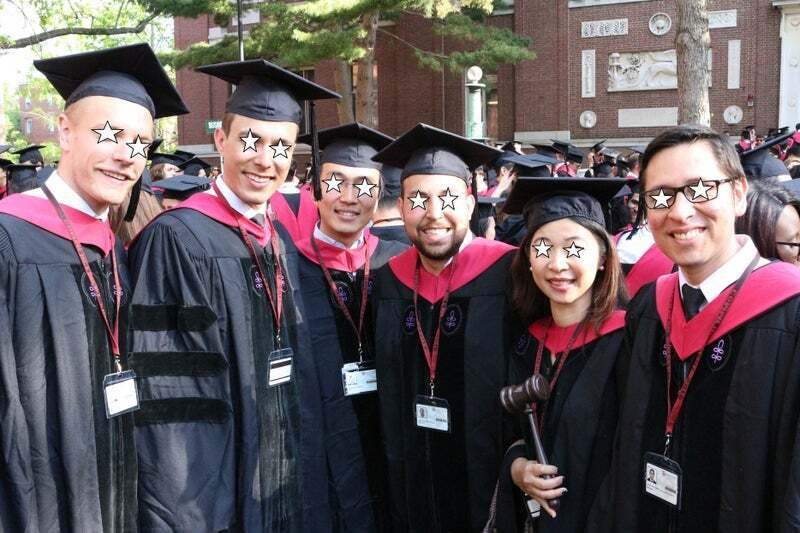
Tomoさん、私も普段は中々聞く機会のないハーバードロースクールでの生活について、詳しく教えてくれたありがとうございました!
この留学体験談、今年も引き続き月1回程度で連載していきますので、楽しみにしていてくださいね!
Thank you so much Tomo for detailing your life at Harvard law school, which I can rarely hear too! I will try to continue this monthly update this year too, so please be looking forward to next posts!
(※本ポストは、2018年2月時点のものをリメイクしたものです。)
